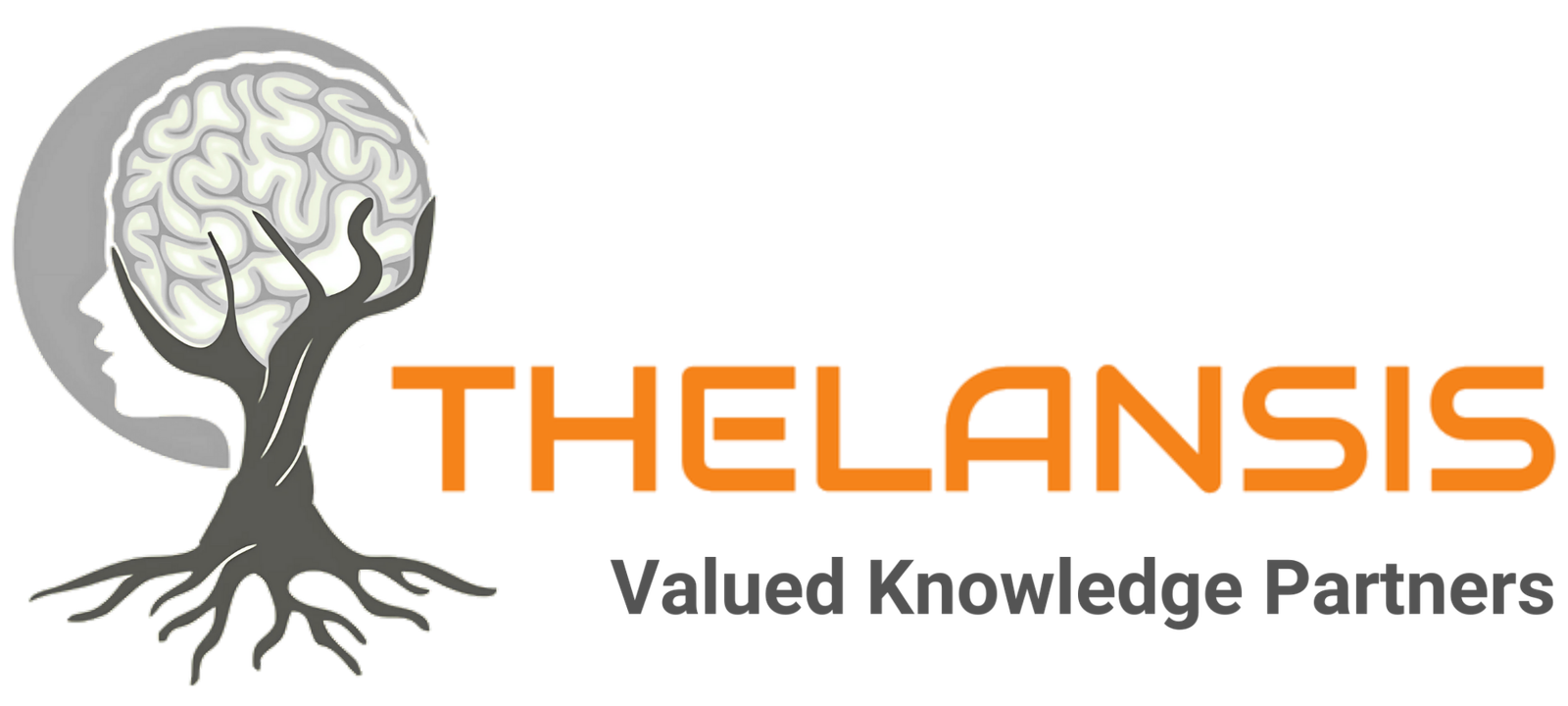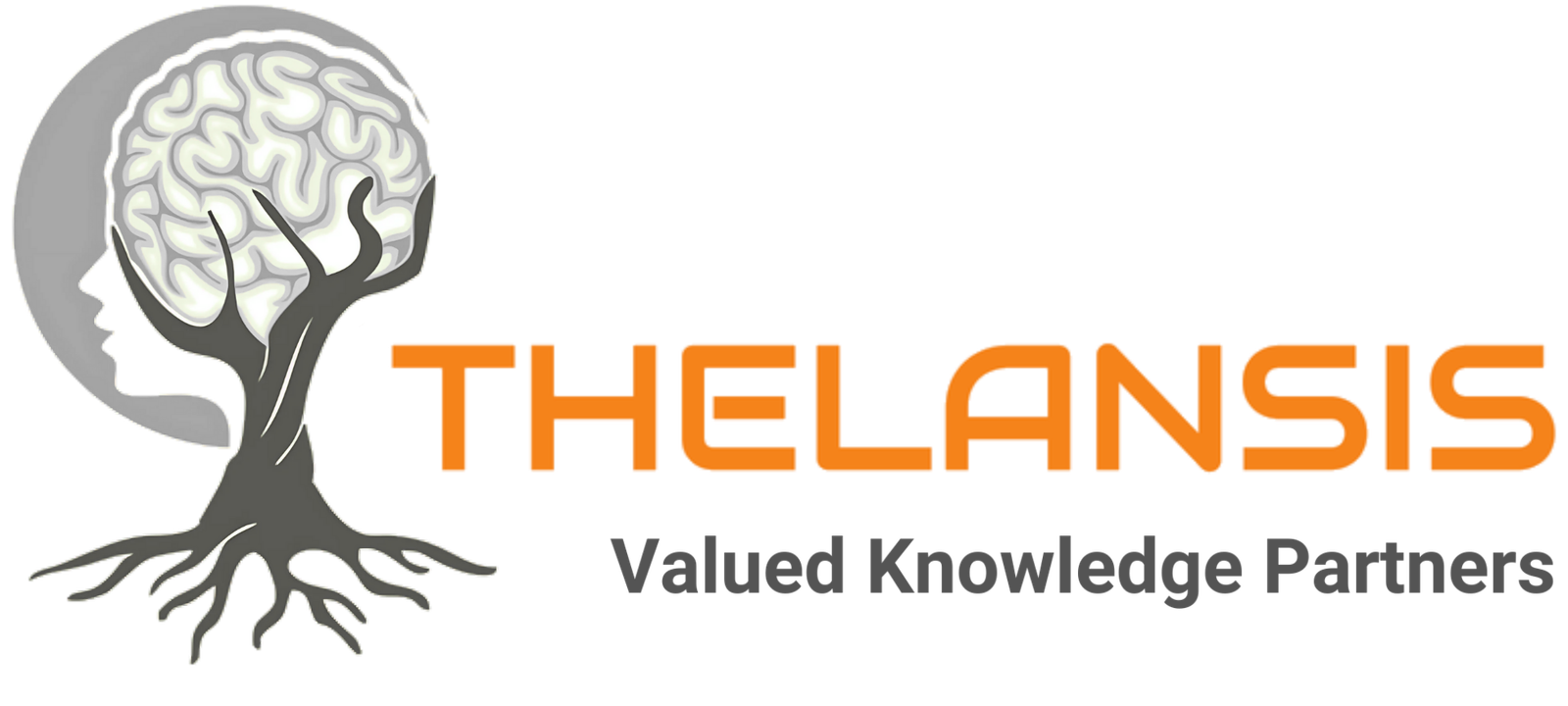Relapsed or Refractory Adult T-cell Lymphoma/Leukemia (ATL) – Market Outlook, Epidemiology, Competitive Landscape, and Market Forecast Report – 2021 To 2032
- Published Date : December 9, 2021
- Updated On : September 20, 2022
- Pages : 164
Relapsed or Refractory Adult T-cell Lymphoma/Leukemia (ATL) Market Outlook
Thelansis’s “Relapsed or Refractory Adult T-cell Lymphoma/Leukemia (ATL) Market Outlook, Epidemiology, Competitive Landscape, and Market Forecast Report – 2021 To 2032″ covers disease overview, epidemiology, drug utilization, prescription share analysis, competitive landscape, clinical practice, regulatory landscape, patient share, market uptake, market forecast, and key market insights under the potential Relapsed or Refractory Adult T-cell Lymphoma/Leukemia (ATL) treatment modalities options for eight major markets (USA, Germany, France, Italy, Spain, UK, Japan, and China).
Relapsed or Refractory Adult T-cell Lymphoma/Leukemia (ATL) Overview
Relapsed or Refractory Adult T-cell lymphoma/leukemia (ATL) is a rare lymphoproliferative neoplasm of mature CD4+ CD25+ T cells caused by infection with the retrovirus human T-lymphotropic virus type 1 (HTLV-1). Nearly 90% of patients experience relapse, and consolidation of the first remission with allogeneic stem-cell transplantation is strongly considered. The aggressive subtypes of ATL carry some of the poorest prognoses of any of the non-Hodgkin lymphomas. In an extensive retrospective analysis, patients with ATL had 5-year failure-free and overall survival (OS) of only 12% and 14%, respectively. However, the clinical course can vary with this disease’s chronic and smouldering variants. In patients without histologically proven tumor lesions, at least 5% of circulating abnormal T lymphocytes are required to diagnose ATL. These cells typically express the surface T-cell lymphocytic markers CD2, CD4, CD5, CD29, CD45RO, and T-cell receptor (TCR) αβ and are usually negative for CD7, CD8, and CD26 and show reduced CD3 expression. HLA-DP, DQ, DR, and interleukin-2R (CD25) lymphocytic activation markers are always present, whereas terminal deoxynucleotidyl transferase is typically absent. The disease is generally subdivided into four clinical presentations; smoldering, chronic, lymphoma, and acute. The poorest prognosis is among those with lymphoma or acute and poor-risk or relapsed chronic subtypes.
- The overall incidence of Adult T-cell lymphoma/leukaemia (ATL) ranges from 0.05 to 0.095 per 100,000 population in the USA.
Geography Covered:
North America- the United States and Canada
Europe- EU5 (Germany, France, Italy, Spain, and the United Kingdom)
Other countries- Japan & China
Study Period: 2021-2032
Current Clinical Practice and Treatment Algorithm
This section of the study covers country-specific current clinical practice, the standard of care, and significant limitations around addressing the unmet needs. Retrospective analysis and bench-marking of clinical study outcomes are presented in terms of Pre-treatment & post-treatment clinical and demographic patient characteristics. Essentially, this section will cover the evolution of the current competitive landscape and its impact on the future treatment paradigm.
KOL Insights:
KOLs across 8 MM markets from the center of Excellence/ Public/ Private hospitals participated in the study. Insights around current treatment landscape, epidemiology, clinical characteristics, future treatment paradigm, and Unmet needs
Market Forecast: Patient Based Forecast Model (MS. Excel Based Automated Dashboard)
– Data Inputs with sourcing
– Market Event and Product Event
– Country-specific Forecast Model
– Market uptake and patient share uptake
– Attribute Analysis
– Analog Analysis
– Disease burden and pricing scenario
– Summary and Insights
NPV/ IRR Calculator-
Optimization of cash flow/ revenue flow concerning all fixed and variable investments throughout the product development process. The rate of return on an investment is a critical indicator to ensure the profitability and break-even of the project.
Competitive Landscape:
The competitive landscape includes country-specific approved as well as pipeline therapies. Any asset/product-specific designation or review such as Orphan drug designation, Fast track, Priority Review, Breakthrough Therapy Designation, Rare Pediatric Disease Designation, and Accelerated Approval are tracked and supplemented with analyst commentary.
Clinical Trial Assessment-
Detailed clinical trial data analysis and critical product positioning include trial design, primary outcomes, secondary outcomes, dosing and schedules, inclusion and exclusion criteria, recruitment status and essentially covers the reported adverse events. Majorly the trial analysis helps determine the potential of the critical assets and their probable filing and launch date.
Unmet Medical Needs Overview-
This report presents the most important clinical unmet needs in the treatment, according to Thelansis research and analysis. Other essential unmet needs identified through our study include decreased cost burden on patients, improved administration convenience, and improved patient compliance.
Visit our social media pages:
Relapsed or Refractory Adult T-cell Lymphoma/Leukemia (ATL) Market Outlook
Thelansis’s “Relapsed or Refractory Adult T-cell Lymphoma/Leukemia (ATL) Market Outlook, Epidemiology, Competitive Landscape, and Market Forecast Report – 2021 To 2032″ covers disease overview, epidemiology, drug utilization, prescription share analysis, competitive landscape, clinical practice, regulatory landscape, patient share, market uptake, market forecast, and key market insights under the potential Relapsed or Refractory Adult T-cell Lymphoma/Leukemia (ATL) treatment modalities options for eight major markets (USA, Germany, France, Italy, Spain, UK, Japan, and China).
Relapsed or Refractory Adult T-cell Lymphoma/Leukemia (ATL) Overview
Relapsed or Refractory Adult T-cell lymphoma/leukemia (ATL) is a rare lymphoproliferative neoplasm of mature CD4+ CD25+ T cells caused by infection with the retrovirus human T-lymphotropic virus type 1 (HTLV-1). Nearly 90% of patients experience relapse, and consolidation of the first remission with allogeneic stem-cell transplantation is strongly considered. The aggressive subtypes of ATL carry some of the poorest prognoses of any of the non-Hodgkin lymphomas. In an extensive retrospective analysis, patients with ATL had 5-year failure-free and overall survival (OS) of only 12% and 14%, respectively. However, the clinical course can vary with this disease’s chronic and smouldering variants. In patients without histologically proven tumor lesions, at least 5% of circulating abnormal T lymphocytes are required to diagnose ATL. These cells typically express the surface T-cell lymphocytic markers CD2, CD4, CD5, CD29, CD45RO, and T-cell receptor (TCR) αβ and are usually negative for CD7, CD8, and CD26 and show reduced CD3 expression. HLA-DP, DQ, DR, and interleukin-2R (CD25) lymphocytic activation markers are always present, whereas terminal deoxynucleotidyl transferase is typically absent. The disease is generally subdivided into four clinical presentations; smoldering, chronic, lymphoma, and acute. The poorest prognosis is among those with lymphoma or acute and poor-risk or relapsed chronic subtypes.
- The overall incidence of Adult T-cell lymphoma/leukaemia (ATL) ranges from 0.05 to 0.095 per 100,000 population in the USA.
Geography Covered:
North America- the United States and Canada
Europe- EU5 (Germany, France, Italy, Spain, and the United Kingdom)
Other countries- Japan & China
Study Period: 2021-2032
Current Clinical Practice and Treatment Algorithm
This section of the study covers country-specific current clinical practice, the standard of care, and significant limitations around addressing the unmet needs. Retrospective analysis and bench-marking of clinical study outcomes are presented in terms of Pre-treatment & post-treatment clinical and demographic patient characteristics. Essentially, this section will cover the evolution of the current competitive landscape and its impact on the future treatment paradigm.
KOL Insights:
KOLs across 8 MM markets from the center of Excellence/ Public/ Private hospitals participated in the study. Insights around current treatment landscape, epidemiology, clinical characteristics, future treatment paradigm, and Unmet needs
Market Forecast: Patient Based Forecast Model (MS. Excel Based Automated Dashboard)
– Data Inputs with sourcing
– Market Event and Product Event
– Country-specific Forecast Model
– Market uptake and patient share uptake
– Attribute Analysis
– Analog Analysis
– Disease burden and pricing scenario
– Summary and Insights
NPV/ IRR Calculator-
Optimization of cash flow/ revenue flow concerning all fixed and variable investments throughout the product development process. The rate of return on an investment is a critical indicator to ensure the profitability and break-even of the project.
Competitive Landscape:
The competitive landscape includes country-specific approved as well as pipeline therapies. Any asset/product-specific designation or review such as Orphan drug designation, Fast track, Priority Review, Breakthrough Therapy Designation, Rare Pediatric Disease Designation, and Accelerated Approval are tracked and supplemented with analyst commentary.
Clinical Trial Assessment-
Detailed clinical trial data analysis and critical product positioning include trial design, primary outcomes, secondary outcomes, dosing and schedules, inclusion and exclusion criteria, recruitment status and essentially covers the reported adverse events. Majorly the trial analysis helps determine the potential of the critical assets and their probable filing and launch date.
Unmet Medical Needs Overview-
This report presents the most important clinical unmet needs in the treatment, according to Thelansis research and analysis. Other essential unmet needs identified through our study include decreased cost burden on patients, improved administration convenience, and improved patient compliance.
Visit our social media pages:
Relapsed or Refractory Adult T-cell Lymphoma/Leukemia (ATL) Competitive Landscape
| S. no | Asset | Company | Stage |
| 1 | Ezharmia (valemetostat tosilate) | Daiichi Sankyo, Inc. | Phase 2 |
| 2 | HBI-8000 | HUYABIO International, LLC. | Phase 2 |
| 3 | ASTX660 | Otsuka Pharmaceutical Co., Ltd. | Phase 2 |
| 4 | SENL101 | Hebei Senlang Biotechnology Inc., Ltd. | Phase 1 |
| 5 | WU-CART-007 | Wugen, Inc. | Phase 2 |
| 6 | Lenalidomide | Celgene Corporation | Phase 2 |
| 7 | KW-0761 | Kyowa Kirin, Inc. | Phase 2 |
| 8 | carfilzomib | Amgen | Phase 1 |
| 9 | CD7CAR T cells | iCell Gene Therapeutics | Phase 1 |
| 10 | PG11047 | Progen Pharmaceuticals | Phase 1 |
Continued…
KOLs across 8 MM market from the center of Excellence/ Public/ Private hospitals participated in the study. Insights around current treatment landscape, epidemiology, clinical characteristics, future treatment paradigm, and Unmet needs.
| COUNTRY | No. Of KOLs |
| USA | 17 |
| GERMANY | 4 |
| UK | 4 |
| SPAIN | 3 |
| FRANCE | 2 |
| ITALY | 3 |
| JAPAN | 3 |
| CHINA | 4 |
Relapsed or Refractory Adult T-cell Lymphoma/Leukemia (ATL) Market Forecast: Patient Based Forecast Model (MS. Excel Based Automated Dashboard)
Data Inputs with sourcing, Market Event, Product Event, Country specific Forecast Model, Market uptake and patient share uptake, Attribute Analysis, Analog Analysis, Disease burden, and pricing scenario, Summary, and Insights.

1. Relapsed or Refractory Adult T-cell Lymphoma/Leukemia (ATL) – Key Findings Summary |
| 1.1. Clinical findings |
| 1.1.1. Disease overview |
| 1.1.2. Therapeutic practices |
| 1.1.3. Future outlook |
| 1.2. Commercial findings |
| 1.2.1. Relapsed or Refractory Adult T-cell Lymphoma/Leukemia (ATL) market scenario 2021 |
| 1.2.2. Relapsed or Refractory Adult T-cell Lymphoma/Leukemia (ATL) market scenario 2025 |
| 1.2.3. Relapsed or Refractory Adult T-cell Lymphoma/Leukemia (ATL) market scenario 2032 |
2. Relapsed or Refractory Adult T-cell Lymphoma/Leukemia (ATL) Overview |
| 2.1. Disease Introduction |
| 2.2. Pathophysiology |
| 2.3. Signs and Symptoms |
| 2.4. Risk Factors |
| 2.5. Etiology |
| 2.6. Classification |
| 2.7. Pathogenesis |
| 2.8. Diagnosis |
| 2.9. Complications |
| 2.10. Treatment Algorithm |
| 2.10.1. Treatment in US (guidelines) |
| 2.10.2. Treatment in EU-5 (guidelines) |
| 2.10.3. Treatment in Japan (guidelines) |
| 2.10.4. Treatment in China (guidelines) |
| 2.11. Treatment Goals for Relapsed or Refractory Adult T-cell Lymphoma/Leukemia (ATL) |
| 2.12. Referral Patterns |
| 2.12.1. Referral Scenario in US |
| 2.12.2. Referral Scenario in EU-5 |
| 2.12.3. Referral Scenario in Japan |
| 2.12.4. Referral Scenario in China |
| 2.13. Relapsed or Refractory Adult T-cell Lymphoma/Leukemia (ATL) Prognosis |
| 2.14. Healthcare burden |
| 2.14.1. Healthcare burden in US |
| 2.14.2. Healthcare burden in EU-5 |
| 2.14.3. Healthcare burden in Japan |
| 2.14.4. Healthcare burden in China |
| 2.15. Unmet Needs in Relapsed or Refractory Adult T-cell Lymphoma/Leukemia (ATL) management |
| 2.16. Market Opportunity for Relapsed or Refractory Adult T-cell Lymphoma/Leukemia (ATL) |
| 2.17. KOL Comments on current and upcoming/expected treatment practices in Relapsed or Refractory Adult T-cell Lymphoma/Leukemia (ATL) |
3. Epidemiology |
| 3.1. Epidemiology Overview |
| 3.2. Epidemiology by Geography |
| 3.2.1. Relapsed or Refractory Adult T-cell Lymphoma/Leukemia (ATL) Epidemiology in US (2021-2032) |
| 3.2.1.1. Incidence of Relapsed or Refractory Adult T-cell Lymphoma/Leukemia (ATL) |
| 3.2.1.2. Diagnosed cases |
| 3.2.1.3. Treatable Patient Pool |
| 3.2.1.4. Epidemiology Trends |
| 3.2.2. Relapsed or Refractory Adult T-cell Lymphoma/Leukemia (ATL) Epidemiology in EU-5 (2021-2032) |
| 3.2.2.1. Incidence of Relapsed or Refractory Adult T-cell Lymphoma/Leukemia (ATL) |
| 3.2.2.2. Diagnosed cases |
| 3.2.2.3. Treatable Patient Pool |
| 3.2.2.4. Epidemiology Trends |
| 3.2.3. Relapsed or Refractory Adult T-cell Lymphoma/Leukemia (ATL) Epidemiology in Japan (2021-2032) |
| 3.2.3.1. Incidence of Relapsed or Refractory Adult T-cell Lymphoma/Leukemia (ATL) |
| 3.2.3.2. Diagnosed cases |
| 3.2.3.3. Treatable Patient Pool |
| 3.2.3.4. Epidemiology Trends |
| 3.2.4. Relapsed or Refractory Adult T-cell Lymphoma/Leukemia (ATL) Epidemiology in China (2021-2032) |
| 3.2.4.1. Incidence of Relapsed or Refractory Adult T-cell Lymphoma/Leukemia (ATL) |
| 3.2.4.2. Diagnosed cases |
| 3.2.4.3. Treatable Patient Pool |
| 3.2.4.4. Epidemiology Trends |
| 3.3. Epidemiology Trends (World-wide) |
4. Market Outlook |
| 4.1. US Relapsed or Refractory Adult T-cell Lymphoma/Leukemia (ATL) Market Forecast 2021-2032 |
| 4.1.1. Market Progression (Futuristic) |
| 4.1.2. Market Trends and Expectations |
| 4.1.2.1. Worst case scenario |
| 4.1.2.2. Base Case Scenario |
| 4.1.2.3. Best Case Scenario |
| 4.1.3. Drivers and Barriers |
| 4.2. UK Relapsed or Refractory Adult T-cell Lymphoma/Leukemia (ATL) Market Forecast 2021-2032 |
| 4.2.1. Market Progression (Futuristic) |
| 4.2.2. Market Trends and Expectations |
| 4.2.2.1. Worst case scenario |
| 4.2.2.2. Base Case Scenario |
| 4.2.2.3. Best Case Scenario |
| 4.2.3. Drivers and Barriers |
| 4.3. France Relapsed or Refractory Adult T-cell Lymphoma/Leukemia (ATL) Market Forecast 2021-2032 |
| 4.3.1. Market Progression (Futuristic) |
| 4.3.2. Market Trends and Expectations |
| 4.3.2.1. Worst case scenario |
| 4.3.2.2. Base Case Scenario |
| 4.3.2.3. Best Case Scenario |
| 4.3.3. Drivers and Barriers |
| 4.4. Germany Relapsed or Refractory Adult T-cell Lymphoma/Leukemia (ATL) Market Forecast 2021-2032 |
| 4.4.1. Market Progression (Futuristic) |
| 4.4.2. Market Trends and Expectations |
| 4.4.2.1. Worst case scenario |
| 4.4.2.2. Base Case Scenario |
| 4.4.2.3. Best Case Scenario |
| 4.4.3. Drivers and Barriers |
| 4.5. Italy Relapsed or Refractory Adult T-cell Lymphoma/Leukemia (ATL) Market Forecast 2021-2032 |
| 4.5.1. Market Progression (Futuristic) |
| 4.5.2. Market Trends and Expectations |
| 4.5.2.1. Worst case scenario |
| 4.5.2.2. Base Case Scenario |
| 4.5.2.3. Best Case Scenario |
| 4.5.3. Drivers and Barriers |
| 4.6. Spain Relapsed or Refractory Adult T-cell Lymphoma/Leukemia (ATL) Market Forecast 2021-2032 |
| 4.6.1. Market Progression (Futuristic) |
| 4.6.2. Market Trends and Expectations |
| 4.6.2.1. Worst case scenario |
| 4.6.2.2. Base Case Scenario |
| 4.6.2.3. Best Case Scenario |
| 4.6.3. Drivers and Barriers |
| 4.7. Japan Relapsed or Refractory Adult T-cell Lymphoma/Leukemia (ATL) Market Forecast 2021-2032 |
| 4.7.1. Market Progression (Futuristic) |
| 4.7.2. Market Trends and Expectations |
| 4.7.2.1. Worst case scenario |
| 4.7.2.2. Base Case Scenario |
| 4.7.2.3. Best Case Scenario |
| 4.7.3. Drivers and Barriers |
| 4.8. China Relapsed or Refractory Adult T-cell Lymphoma/Leukemia (ATL) Market Forecast 2021-2032 |
| 4.8.1. Market Progression (Futuristic) |
| 4.8.2. Market Trends and Expectations |
| 4.8.2.1. Worst case scenario |
| 4.8.2.2. Base Case Scenario |
| 4.8.2.3. Best Case Scenario |
| 4.8.3. Drivers and Barriers |
| 4.9. Key Expected Milestones (world-wide) Impacting the Market |
5. Competitive Landscape |
| 5.1. Pipeline Therapies Overview |
| 5.1.1. Phase III Therapies |
| 5.1.1.1. Current Status |
| 5.1.1.2. Trial details, results |
| 5.1.1.3. Approval Timeline |
| 5.1.1.4. Likelihood of approval |
| 5.1.1.5. Expected Product Positioning |
| 5.1.1.2. All other Phase III Therapies ….. |
| 5.1.1.3. Attribute Analysis of Phase III molecules |
| 5.1.2. Phase II and Phase I/II Therapies |
| 5.1.2.1. Current Status |
| 5.1.2.2. Trial details, results |
| 5.1.2.3. Approval Timelines |
| 5.1.3. List of active Pre-clinical Therapies |
| 5.1.3.1. Status in Relapsed or Refractory Adult T-cell Lymphoma/Leukemia (ATL) |
| 5.1.3.2. Company positioning |
| 5.1.3.2. All other pre-clinical therapies |
| 5.1.4. List of Inactive/discontinued assets |
| 5.1.4.1. Business impact of discontinuations on current pipeline |
| 5.1.5. Potential winners from Relapsed or Refractory Adult T-cell Lymphoma/Leukemia (ATL) Pipeline |
| 5.1.5.1. Potential Blockbusters across the pipeline |
6. Regulatory/Approval Scenario |
| 6.1. Regulatory/Approval Framework in US |
| 6.1.1. Policy Framework |
| 6.1.2. Payer Expectations |
| 6.2. Regulatory/Approval Framework in UK |
| 6.2.1. Policy Framework |
| 6.2.2. Payer Expectations |
| 6.3. Regulatory/Approval Framework in France |
| 6.3.1. Policy Framework |
| 6.3.2. Payer Expectations |
| 6.4. Regulatory/Approval Framework in Germany |
| 6.4.1. Policy Framework |
| 6.4.2. Payer Expectations |
| 6.5. Regulatory/Approval Framework in Italy |
| 6.5.1. Policy Framework |
| 6.5.2. Payer Expectations |
| 6.6. Regulatory/Approval Framework in Spain |
| 6.6.1. Policy Framework |
| 6.6.2. Payer Expectations |
| 6.7. Regulatory/Approval Framework in Japan |
| 6.7.1. Policy Framework |
| 6.7.2. Payer Expectations |
| 6.8. Regulatory/Approval Framework in China |
| 6.8.1. Policy Framework |
| 6.8.2. Payer Expectations |
7. Clinical Trial Assessment – Current and Future Paradigm |
| 7.1. Distribution of Primary Endpoints across trials |
| 7.2. Distribution of Secondary Endpoints across trials |
| 7.3. Evolution and acceptance of surrogate endpoints |
| 7.4. Key Investigator initiated trials |
| 7.5. Attrition analysis |
| 7.5.1. Suspended/Discontinued Assets |
| 7.5.2. Failed Trials, Reasons and Business Impact |
| 7.5.3. Terminated Trials, Reasons and Business Impact |
| 7.5.4. Withdrawn Trials, Reasons and Business Impact |
| 7.6. Trial enrollment scenario and challenges |
| 7.7. Clinical Trial Guidance (across geographies) |
8. Thelansis Commentary |
| 8.1. Key Unmet needs in Relapsed or Refractory Adult T-cell Lymphoma/Leukemia (ATL) |
| 8.2. Possible Best-case Clinical Trial Strategies |
| 8.3. Possible Best Case Targeted Product Profile (TPP) |
| 8.4. Possible Best-case Market positioning strategies |
| 8.5. Possible Best-case Market Access Strategies |
| 8.6. Possible Best-case LCM Strategies |
| 8.7. Overall View on Relapsed or Refractory Adult T-cell Lymphoma/Leukemia (ATL) Market in Dollar Value |
9. Report Methodology |
| 9.1. Secondary research |
| 9.2. Primary research |
| 9.3. Data collation |
| 9.4. Insight Generation |
10. About Thelansis |
| 10.1. Our Capabilities |
| 10.2. Our Services |
| 10.3. Our Contacts |
| 10.4. Disclaimer |
Table of contents (TOC)
1. Relapsed or Refractory Adult T-cell Lymphoma/Leukemia (ATL) – Key Findings Summary |
| 1.1. Clinical findings |
| 1.1.1. Disease overview |
| 1.1.2. Therapeutic practices |
| 1.1.3. Future outlook |
| 1.2. Commercial findings |
| 1.2.1. Relapsed or Refractory Adult T-cell Lymphoma/Leukemia (ATL) market scenario 2021 |
| 1.2.2. Relapsed or Refractory Adult T-cell Lymphoma/Leukemia (ATL) market scenario 2025 |
| 1.2.3. Relapsed or Refractory Adult T-cell Lymphoma/Leukemia (ATL) market scenario 2032 |
2. Relapsed or Refractory Adult T-cell Lymphoma/Leukemia (ATL) Overview |
| 2.1. Disease Introduction |
| 2.2. Pathophysiology |
| 2.3. Signs and Symptoms |
| 2.4. Risk Factors |
| 2.5. Etiology |
| 2.6. Classification |
| 2.7. Pathogenesis |
| 2.8. Diagnosis |
| 2.9. Complications |
| 2.10. Treatment Algorithm |
| 2.10.1. Treatment in US (guidelines) |
| 2.10.2. Treatment in EU-5 (guidelines) |
| 2.10.3. Treatment in Japan (guidelines) |
| 2.10.4. Treatment in China (guidelines) |
| 2.11. Treatment Goals for Relapsed or Refractory Adult T-cell Lymphoma/Leukemia (ATL) |
| 2.12. Referral Patterns |
| 2.12.1. Referral Scenario in US |
| 2.12.2. Referral Scenario in EU-5 |
| 2.12.3. Referral Scenario in Japan |
| 2.12.4. Referral Scenario in China |
| 2.13. Relapsed or Refractory Adult T-cell Lymphoma/Leukemia (ATL) Prognosis |
| 2.14. Healthcare burden |
| 2.14.1. Healthcare burden in US |
| 2.14.2. Healthcare burden in EU-5 |
| 2.14.3. Healthcare burden in Japan |
| 2.14.4. Healthcare burden in China |
| 2.15. Unmet Needs in Relapsed or Refractory Adult T-cell Lymphoma/Leukemia (ATL) management |
| 2.16. Market Opportunity for Relapsed or Refractory Adult T-cell Lymphoma/Leukemia (ATL) |
| 2.17. KOL Comments on current and upcoming/expected treatment practices in Relapsed or Refractory Adult T-cell Lymphoma/Leukemia (ATL) |
3. Epidemiology |
| 3.1. Epidemiology Overview |
| 3.2. Epidemiology by Geography |
| 3.2.1. Relapsed or Refractory Adult T-cell Lymphoma/Leukemia (ATL) Epidemiology in US (2021-2032) |
| 3.2.1.1. Incidence of Relapsed or Refractory Adult T-cell Lymphoma/Leukemia (ATL) |
| 3.2.1.2. Diagnosed cases |
| 3.2.1.3. Treatable Patient Pool |
| 3.2.1.4. Epidemiology Trends |
| 3.2.2. Relapsed or Refractory Adult T-cell Lymphoma/Leukemia (ATL) Epidemiology in EU-5 (2021-2032) |
| 3.2.2.1. Incidence of Relapsed or Refractory Adult T-cell Lymphoma/Leukemia (ATL) |
| 3.2.2.2. Diagnosed cases |
| 3.2.2.3. Treatable Patient Pool |
| 3.2.2.4. Epidemiology Trends |
| 3.2.3. Relapsed or Refractory Adult T-cell Lymphoma/Leukemia (ATL) Epidemiology in Japan (2021-2032) |
| 3.2.3.1. Incidence of Relapsed or Refractory Adult T-cell Lymphoma/Leukemia (ATL) |
| 3.2.3.2. Diagnosed cases |
| 3.2.3.3. Treatable Patient Pool |
| 3.2.3.4. Epidemiology Trends |
| 3.2.4. Relapsed or Refractory Adult T-cell Lymphoma/Leukemia (ATL) Epidemiology in China (2021-2032) |
| 3.2.4.1. Incidence of Relapsed or Refractory Adult T-cell Lymphoma/Leukemia (ATL) |
| 3.2.4.2. Diagnosed cases |
| 3.2.4.3. Treatable Patient Pool |
| 3.2.4.4. Epidemiology Trends |
| 3.3. Epidemiology Trends (World-wide) |
4. Market Outlook |
| 4.1. US Relapsed or Refractory Adult T-cell Lymphoma/Leukemia (ATL) Market Forecast 2021-2032 |
| 4.1.1. Market Progression (Futuristic) |
| 4.1.2. Market Trends and Expectations |
| 4.1.2.1. Worst case scenario |
| 4.1.2.2. Base Case Scenario |
| 4.1.2.3. Best Case Scenario |
| 4.1.3. Drivers and Barriers |
| 4.2. UK Relapsed or Refractory Adult T-cell Lymphoma/Leukemia (ATL) Market Forecast 2021-2032 |
| 4.2.1. Market Progression (Futuristic) |
| 4.2.2. Market Trends and Expectations |
| 4.2.2.1. Worst case scenario |
| 4.2.2.2. Base Case Scenario |
| 4.2.2.3. Best Case Scenario |
| 4.2.3. Drivers and Barriers |
| 4.3. France Relapsed or Refractory Adult T-cell Lymphoma/Leukemia (ATL) Market Forecast 2021-2032 |
| 4.3.1. Market Progression (Futuristic) |
| 4.3.2. Market Trends and Expectations |
| 4.3.2.1. Worst case scenario |
| 4.3.2.2. Base Case Scenario |
| 4.3.2.3. Best Case Scenario |
| 4.3.3. Drivers and Barriers |
| 4.4. Germany Relapsed or Refractory Adult T-cell Lymphoma/Leukemia (ATL) Market Forecast 2021-2032 |
| 4.4.1. Market Progression (Futuristic) |
| 4.4.2. Market Trends and Expectations |
| 4.4.2.1. Worst case scenario |
| 4.4.2.2. Base Case Scenario |
| 4.4.2.3. Best Case Scenario |
| 4.4.3. Drivers and Barriers |
| 4.5. Italy Relapsed or Refractory Adult T-cell Lymphoma/Leukemia (ATL) Market Forecast 2021-2032 |
| 4.5.1. Market Progression (Futuristic) |
| 4.5.2. Market Trends and Expectations |
| 4.5.2.1. Worst case scenario |
| 4.5.2.2. Base Case Scenario |
| 4.5.2.3. Best Case Scenario |
| 4.5.3. Drivers and Barriers |
| 4.6. Spain Relapsed or Refractory Adult T-cell Lymphoma/Leukemia (ATL) Market Forecast 2021-2032 |
| 4.6.1. Market Progression (Futuristic) |
| 4.6.2. Market Trends and Expectations |
| 4.6.2.1. Worst case scenario |
| 4.6.2.2. Base Case Scenario |
| 4.6.2.3. Best Case Scenario |
| 4.6.3. Drivers and Barriers |
| 4.7. Japan Relapsed or Refractory Adult T-cell Lymphoma/Leukemia (ATL) Market Forecast 2021-2032 |
| 4.7.1. Market Progression (Futuristic) |
| 4.7.2. Market Trends and Expectations |
| 4.7.2.1. Worst case scenario |
| 4.7.2.2. Base Case Scenario |
| 4.7.2.3. Best Case Scenario |
| 4.7.3. Drivers and Barriers |
| 4.8. China Relapsed or Refractory Adult T-cell Lymphoma/Leukemia (ATL) Market Forecast 2021-2032 |
| 4.8.1. Market Progression (Futuristic) |
| 4.8.2. Market Trends and Expectations |
| 4.8.2.1. Worst case scenario |
| 4.8.2.2. Base Case Scenario |
| 4.8.2.3. Best Case Scenario |
| 4.8.3. Drivers and Barriers |
| 4.9. Key Expected Milestones (world-wide) Impacting the Market |
5. Competitive Landscape |
| 5.1. Pipeline Therapies Overview |
| 5.1.1. Phase III Therapies |
| 5.1.1.1. Current Status |
| 5.1.1.2. Trial details, results |
| 5.1.1.3. Approval Timeline |
| 5.1.1.4. Likelihood of approval |
| 5.1.1.5. Expected Product Positioning |
| 5.1.1.2. All other Phase III Therapies ….. |
| 5.1.1.3. Attribute Analysis of Phase III molecules |
| 5.1.2. Phase II and Phase I/II Therapies |
| 5.1.2.1. Current Status |
| 5.1.2.2. Trial details, results |
| 5.1.2.3. Approval Timelines |
| 5.1.3. List of active Pre-clinical Therapies |
| 5.1.3.1. Status in Relapsed or Refractory Adult T-cell Lymphoma/Leukemia (ATL) |
| 5.1.3.2. Company positioning |
| 5.1.3.2. All other pre-clinical therapies |
| 5.1.4. List of Inactive/discontinued assets |
| 5.1.4.1. Business impact of discontinuations on current pipeline |
| 5.1.5. Potential winners from Relapsed or Refractory Adult T-cell Lymphoma/Leukemia (ATL) Pipeline |
| 5.1.5.1. Potential Blockbusters across the pipeline |
6. Regulatory/Approval Scenario |
| 6.1. Regulatory/Approval Framework in US |
| 6.1.1. Policy Framework |
| 6.1.2. Payer Expectations |
| 6.2. Regulatory/Approval Framework in UK |
| 6.2.1. Policy Framework |
| 6.2.2. Payer Expectations |
| 6.3. Regulatory/Approval Framework in France |
| 6.3.1. Policy Framework |
| 6.3.2. Payer Expectations |
| 6.4. Regulatory/Approval Framework in Germany |
| 6.4.1. Policy Framework |
| 6.4.2. Payer Expectations |
| 6.5. Regulatory/Approval Framework in Italy |
| 6.5.1. Policy Framework |
| 6.5.2. Payer Expectations |
| 6.6. Regulatory/Approval Framework in Spain |
| 6.6.1. Policy Framework |
| 6.6.2. Payer Expectations |
| 6.7. Regulatory/Approval Framework in Japan |
| 6.7.1. Policy Framework |
| 6.7.2. Payer Expectations |
| 6.8. Regulatory/Approval Framework in China |
| 6.8.1. Policy Framework |
| 6.8.2. Payer Expectations |
7. Clinical Trial Assessment – Current and Future Paradigm |
| 7.1. Distribution of Primary Endpoints across trials |
| 7.2. Distribution of Secondary Endpoints across trials |
| 7.3. Evolution and acceptance of surrogate endpoints |
| 7.4. Key Investigator initiated trials |
| 7.5. Attrition analysis |
| 7.5.1. Suspended/Discontinued Assets |
| 7.5.2. Failed Trials, Reasons and Business Impact |
| 7.5.3. Terminated Trials, Reasons and Business Impact |
| 7.5.4. Withdrawn Trials, Reasons and Business Impact |
| 7.6. Trial enrollment scenario and challenges |
| 7.7. Clinical Trial Guidance (across geographies) |
8. Thelansis Commentary |
| 8.1. Key Unmet needs in Relapsed or Refractory Adult T-cell Lymphoma/Leukemia (ATL) |
| 8.2. Possible Best-case Clinical Trial Strategies |
| 8.3. Possible Best Case Targeted Product Profile (TPP) |
| 8.4. Possible Best-case Market positioning strategies |
| 8.5. Possible Best-case Market Access Strategies |
| 8.6. Possible Best-case LCM Strategies |
| 8.7. Overall View on Relapsed or Refractory Adult T-cell Lymphoma/Leukemia (ATL) Market in Dollar Value |
9. Report Methodology |
| 9.1. Secondary research |
| 9.2. Primary research |
| 9.3. Data collation |
| 9.4. Insight Generation |
10. About Thelansis |
| 10.1. Our Capabilities |
| 10.2. Our Services |
| 10.3. Our Contacts |
| 10.4. Disclaimer |




